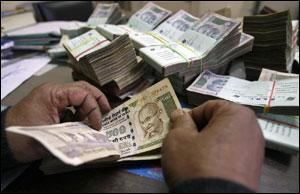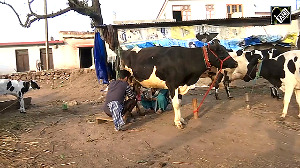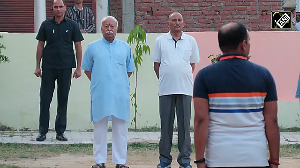As a prelude to the Goods & Services Tax (GST), the finance ministry might harmonise service tax and excise duty laws in Budget 2013-14. Also, it is likely to simplify Cenvat credit rules that allow set-off of excise duty or service tax paid on inputs against tax liability on the final product. It is also considering bringing some health and education categories in the negative list for taxation of services.
 At present, excise duty and service tax are levied under two Acts. The ministry has shown its intent to merge the laws as a step towards GST. To begin with, it might harmonise essential processes like registration, return and assessment compliance. Cenvat credit and provisions related to the settlement commission and appellate matters are common for service tax and excise duty.
At present, excise duty and service tax are levied under two Acts. The ministry has shown its intent to merge the laws as a step towards GST. To begin with, it might harmonise essential processes like registration, return and assessment compliance. Cenvat credit and provisions related to the settlement commission and appellate matters are common for service tax and excise duty.
A finance ministry official said the Central Board of Excise & Customs was also trying to address the issues related to input tax credit. It was in the process of simplifying the existing Cenvat credit scheme.
“If Cenvat credit rules are simplified, it will be a good reform. They should also address the concerns with regard to inverted duty structure, where raw material duty is higher than the finished product,” said Pratik Jain, partner, KPMG. He added wherever there was a difference between the provisions of central excise and service tax, rules should be aligned. If a refund was allowed on export of excise-exempt goods, that should be allowed for export of services, too.
In last Budget, too, Cenvat credit rules were amended to simplify the procedure for refund of unutilised credit on account of exports. Credit was allowed on sale, supply, repair, rent and insurance of motor vehicles. The amendments allowed credit on delivery of goods and payment of service tax by the service receiver on a reverse-charge basis. However, experts say it has not helped much.
Officials also said some education and health categories might be brought under the negative list, which keeps 17 services outside the tax net. Currently, education is kept under the negative list at the pre-school level, up to higher secondary school, as part of a curriculum to obtain a qualification, and as part of an approved vocational course.
Auxiliary educational services and renting of immovable property by educational institutions in respect of education have been exempted from service tax. Healthcare services provided by clinical establishments, authorised medical practitioners or para-medics are also exempt. Budget might move some of these services, as well as bring in some more services taxed currently, to the negative list.












 © 2025
© 2025